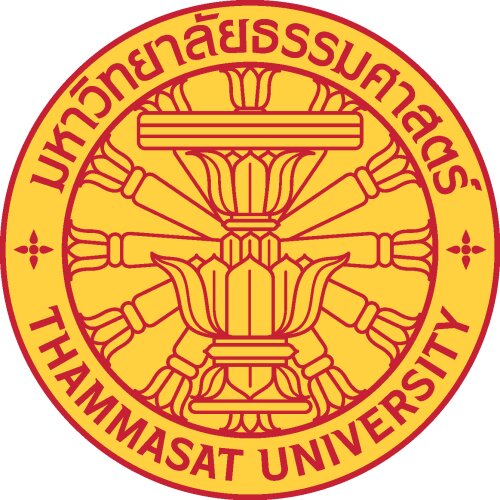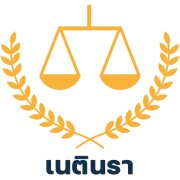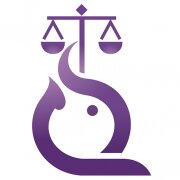Best Constitutional Law Lawyers in Bangkok
Share your needs with us, get contacted by law firms.
Free. Takes 2 min.
List of the best lawyers in Bangkok, Thailand
Legal guides written by Smart Legal Solutions:
- Main Legal Measures to Protect Foreign Investment in Thailand
- The importance of the geographical indications for the Thai economy
About Constitutional Law in Bangkok, Thailand
Constitutional Law in Bangkok, Thailand, revolves around the foundation and interpretation of the nation’s constitution, which is the supreme law governing the country. It outlines the structure of the Thai government, defines the relationship between the state and its citizens, and safeguards fundamental rights and liberties. The constitutional framework has evolved over decades, reflecting both domestic political changes and international influences, making it complex yet pivotal to understanding Thai legal dynamics.
Why You May Need a Lawyer
Individuals in Bangkok may require legal assistance in Constitutional Law for various reasons, including:
- Protection of Rights: To ensure that one’s constitutional rights are respected, particularly in cases of alleged governmental overreach or infringement.
- Litigation: When involved in legal proceedings where the interpretation of constitutional provisions is crucial.
- Political Activism: For advice and representation in activities that may risk breaching constitutional constraints.
- Academic or Professional Applications: For those working in fields that regularly intersect with constitutional matters.
- Challenging Legislation: To contest or support the constitutionality of laws or governmental decisions.
Local Laws Overview
Bangkok, as the capital of Thailand, enforces the constitutional laws that are applicable nationwide. Key aspects include:
- Royal Tradition: Thailand is a constitutional monarchy, thus, laws related to the monarchy's role are highly significant.
- Government Structure: The separation of powers between the executive, legislative, and judiciary branches is constitutionally defined.
- Human Rights: The Thai constitution acknowledges and aims to protect individual rights, though there can be variances in practical enforcement.
- Emergency Powers: Constitutional rules regarding state emergencies are critical given Bangkok's political climate.
- Legal Amendments: Understanding the official procedure for amending constitutional laws is essential due to periodic revisions.
Frequently Asked Questions
What is the role of the Thai Constitutional Court?
The Constitutional Court of Thailand is tasked with interpreting the constitution and has the authority to rule on whether laws and government actions comply with constitutional provisions.
How can the constitution be amended?
The Thai constitution provides specific procedures for amendments, which typically involve legislative approval and may require a referendum, depending on the nature of the proposed change.
Are human rights guaranteed under the Thai constitution?
Yes, the Thai constitution recognizes a range of human rights, though implementation can vary. Legal recourse is available for those whose rights are infringed upon.
Can foreign nationals invoke constitutional law protections in Thailand?
While the Thai constitution primarily protects Thai citizens, certain provisions may extend to foreign nationals, particularly concerning human rights issues.
What is lese-majesty and how does it relate to constitutional law?
Lese-majesty refers to laws protecting the Thai monarchy from defamation. It is a constitutional matter, emphasizing the monarchy's revered status in Thailand.
How do constitutional laws affect governmental powers during emergencies?
The constitution delineates specific powers and limitations on the government during emergencies, which can impact civil liberties.
What resources are available for researching Thai constitutional law?
Official government publications, academic journals, and legal databases are primary sources for researching Thai constitutional law.
Can public protests be held legally under the constitution?
While the Thai constitution recognizes the right to peaceful assembly, regulations and restrictions must be observed, particularly in politically sensitive contexts.
How does constitutional law impact free speech in Thailand?
Free speech is constitutionally protected but is subject to restrictions, including laws on defamation and national security concerns.
Is there a process for challenging the constitutionality of a law?
Yes, individuals can bring cases before the Constitutional Court if they believe a law contradicts the constitution.
Additional Resources
For those seeking further information, the following resources may be helpful:
- Office of the Constitutional Court: Provides official rulings and interpretations of constitutional matters.
- Thai Bar Association: Offers guidance and resources for legal professionals and the public.
- Human Rights Commission of Thailand: An important body for understanding rights within the constitutional framework.
- Academic Institutions: Universities in Bangkok often have departments specializing in constitutional law that offer courses and seminars.
Next Steps
If you require legal assistance in Constitutional Law, consider the following steps:
- Consult a Lawyer: Reach out to a lawyer specializing in Constitutional Law for personalized advice and representation.
- Research Legal Firms: Look for reputable legal firms in Bangkok with expertise in constitutional matters.
- Utilize Online Resources: Use online databases and forums to gather preliminary information on your legal issue.
- Contact Governmental Bodies: If applicable, contact relevant governmental or regulatory bodies for guidance.
- Attend Legal Clinics or Workshops: Participate in public legal education programs to better understand your rights and options.
Lawzana helps you find the best lawyers and law firms in Bangkok through a curated and pre-screened list of qualified legal professionals. Our platform offers rankings and detailed profiles of attorneys and law firms, allowing you to compare based on practice areas, including Constitutional Law, experience, and client feedback.
Each profile includes a description of the firm's areas of practice, client reviews, team members and partners, year of establishment, spoken languages, office locations, contact information, social media presence, and any published articles or resources. Most firms on our platform speak English and are experienced in both local and international legal matters.
Get a quote from top-rated law firms in Bangkok, Thailand — quickly, securely, and without unnecessary hassle.
Disclaimer:
The information provided on this page is for general informational purposes only and does not constitute legal advice. While we strive to ensure the accuracy and relevance of the content, legal information may change over time, and interpretations of the law can vary. You should always consult with a qualified legal professional for advice specific to your situation.
We disclaim all liability for actions taken or not taken based on the content of this page. If you believe any information is incorrect or outdated, please contact us, and we will review and update it where appropriate.
















